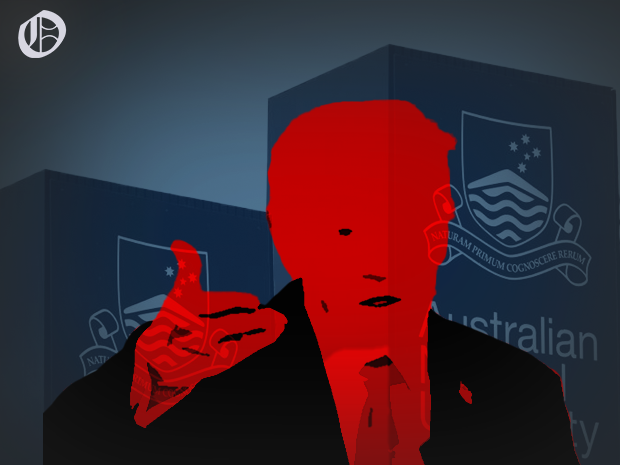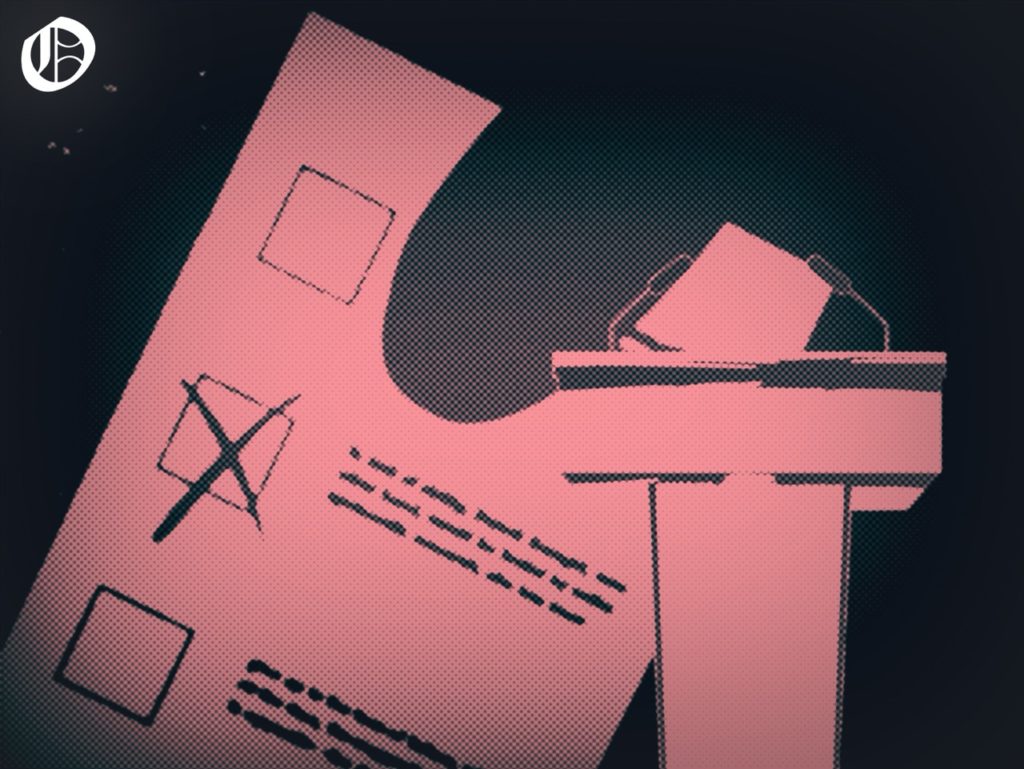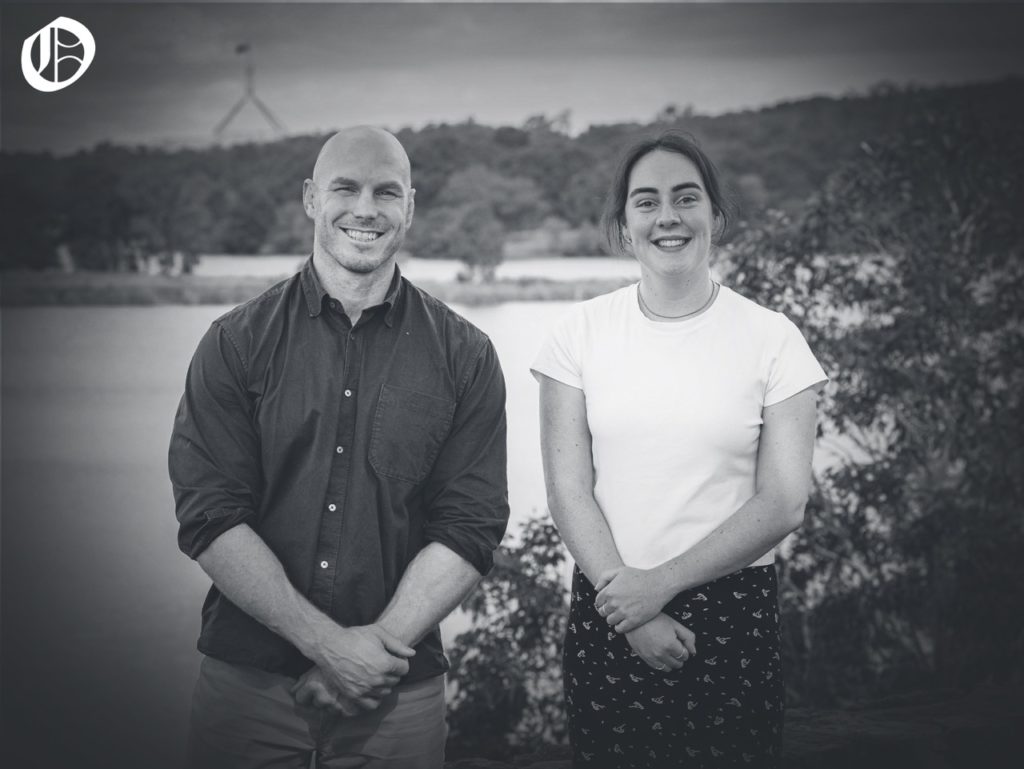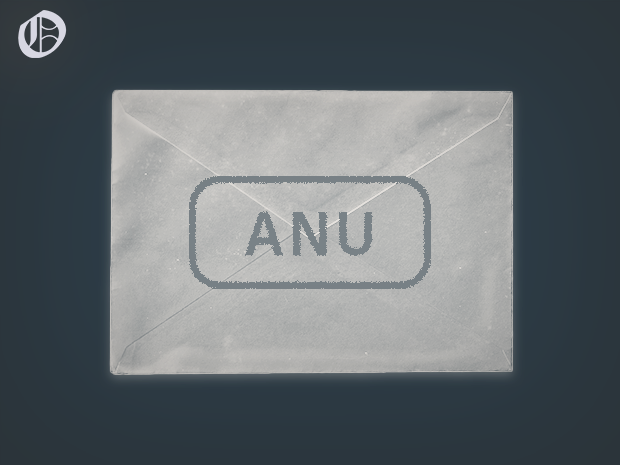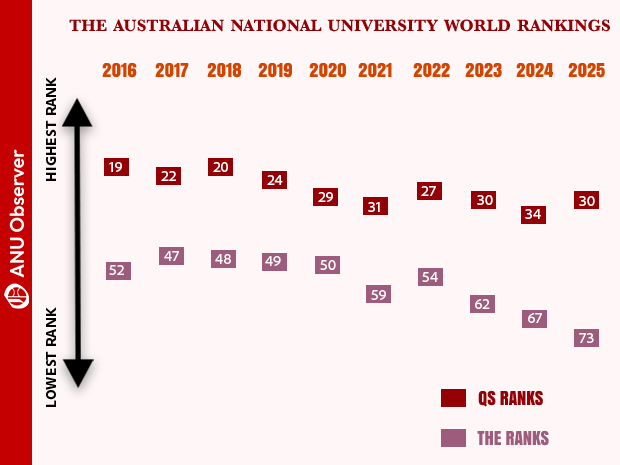Education Officers, Head to Head
By Rebecca Zhong
This year, there is a three-way race for ANUSA Education Officer. Empower’s Henri Vickers’ platform is focused on working with ANUSA departments and “[making] real efforts to reach out” to student activists. Turn Over a New Leaf is putting forward Skanda Panditharatne, who plans to reach more students through both traditional and “innovative” activism. Kim Stern, running with Climate Action, is focused on student protest as part of broader ticket policies for climate and social justice activism.
The Job
The role of Education Officer involves advocating for students on issues which impact their university education and experience. The Education Officer is involved with campaigns and advocacy on issues specific to ANU students, as well as broader issues like government policy on higher education, workers’ rights, and climate change. In addition to collaborating with students and advocacy bodies like the National Union of Students (NUS), they run events aimed at keeping students informed of their interests, such as the “Get Enrolled. Get Informed. Get Voting” campaigns this year.
The Education Officer also runs and works closely with the Education Committee. The Committee, which is open to all undergraduate students, plays a central role in organising campaigns and protests.
The Candidates
Henri Vickers is the candidate for Empower. He is currently an ANUSA General Representative and Deputy Education Officer. Vickers is affiliated with Labor’s Left faction, and he was the Law Students’ Society First Year Officer in 2018.
Skanda Panditharatne is the candidate for New Leaf. He is currently the Special Interest Branch Officer for ANUSA Clubs Council, Treasurer of the ANU Greens Club and the ACT Coordinator of the Grassroots Independents, which is a National Union of Students faction. He was an Observer News Editor in 2017 and 2018.
Kim Stern is the candidate for Climate Action. Stern is affiliated with Socialist Alternative, and a member of the Victorian Socialists. Last year, they held the position of NUS Queer Officer. Stern has been involved with a number of activist groups and campaigns, such as Stop Adani and the Refugee Action Committee.
The Policies
Education Committee
In their policies, Vickers and Panditharatne highlight student engagement in campus activism through the Education Committee as an area for improvement.
Panditharatne thinks EdComm has a “factionalised environment” which is a barrier to student engagement. He also wants to address the issue of “institutional memory loss” in EdComm and the absence of a clear role for the Committee in the ANUSA Constitution. Panditharatne says that to combat this, he wants to continue the work of 2018 Education Officer Harry Needham in developing a ’Terms of Reference’ document for EdComm. He also wants to add more Deputy Education Officer roles, with students selected based on their applications. Panditharatne said that he “would attempt to include a diversity of political views and backgrounds”, because he “believes this increases engagement with Education Committee”.
Panditharatne also wants to create an ‘Education Policy Unit’, proposed by 2017 Gen Rep Howard Maclean. He describes the potential Unit as “basically an in-house think tank” which writes submissions and reports in response to proposed government policies, as part of EdComm’s lobbying efforts.
Vickers believes the main reason for perceptions of factionalism and domination by “a vocal minority” within the Committee is that “EdComm has practically no attendance”. Vickers envisages a more proactive role for the Education Officer in recruiting students who want to get involved in EdComm campaigns. He characterised EdComm as a potential “hub of activists and activism on campus”, which can provide opportunities “to promote, organise, recruit and pull labour-power for department and collective activism”.
Stern believes that the issue with EdComm is that it should be more oriented towards activism, specifically through “mobilising students”.
Activism
Stern has consistently emphasised a desire for EdComm, and ANUSA more broadly, to engage in “more left-wing activism” and “fight back against the Right”. At the Education Officer debate, they criticised the involvement of EdComm and Education Officer Tanika Sibal in organising the “Get Enrolled, Get Informed, Get Voting” campaign for the Federal Elections. Stern described the campaign, which included putting together information about all candidates and hosting a federal candidates debate, as “reprehensibly irresponsible”. Instead, Stern intends to ensure that ANUSA commits to campaigns like the School Strike 4 Climate and the Refugee Action Campaign.
Vickers proposes a number of issues which EdComm could prioritise in the future, including divestment from fossil fuels, on-campus workers, and the Campus Master Plan. He says that his motto as Education Officer will be “organise, organise, organise”. He also emphasises a role for EdComm as “a meaningful ally of other departments” which could “bring the cavalry” to help with campaigns that they want to run.
Panditharatne does not have any specific issues he plans to organise actions around, saying instead that ANUSA needs to be ready for “any new Government policy which hurts students”. However, he highlights the potential for EdComm to collaborate with the Environmental Collective and groups like Fossil Free ANU to push for ANU to divest from fossil fuels. Like Vickers, Panditharatne says he sees a place for EdComm to support autonomous Departments in their campaigns, while “[letting] them take the lead”. The New Leaf candidate plans to increase student outreach with education activism through “non-traditional activism”, including the use of social media campaigns and protest art. Additionally, Panditharatne says he wants to improve the visibility of student protests in local and national media outlets by inviting media to events and providing press releases.
Coursework and Curriculum
Each candidate has indicated varying levels of commitment to push for a change back to 13-week semesters and the revival of the Diploma of Languages. The change from 13-week semesters to 12-week semesters commenced in 2017. In the same year, the University had also announced that students would no longer be able to enrol in the Diploma of Languages program.
Panditharatne says that he would call on lecturers to utilise video or audio files to cover topics like course administration in order to ensure all 12 weeks of class for course content.
First Year Camps
Organising First Year Camps has traditionally been one of the Education Officer’s responsibilities. This year’s first year camp was cancelled at the last minute, with a one-day beach trip run instead. All three candidates agreed that the position should focus less on organising these camps, due to the way it has detracted from the time available for previous Officers to work on campaigns in Semester 1. Vickers and Panditharatne have said they are open to running one-day events.
Voting is entirely online and open until 12pm Thursday 22 August.
Editor’s note: as with all Head to Head articles, all candidates were sent a draft version before publication to check that nothing vital was missing. Stern did not respond to this.
Skanda Panditharatne was an Observer News Editor in 2017 and 2018. He ceased all involvement with Observer in March 2019.
Know something we don’t know? Email [email protected] or use our anonymous tip submission.
If you have an issue with this article, or a correction to make, you can contact us at [email protected], submit a formal dispute, or angery react the Facebook post.
Want to get involved? You can write articles, photograph, livestream or do web support. We’re also looking for someone to yell “extra!” outside Davey Lodge at 1AM. Apply today!




